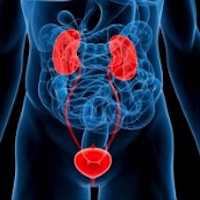Microorganisms and antibiotic susceptibilities isolated from urine cultures

Accepted: January 19, 2020
All claims expressed in this article are solely those of the authors and do not necessarily represent those of their affiliated organizations, or those of the publisher, the editors and the reviewers. Any product that may be evaluated in this article or claim that may be made by its manufacturer is not guaranteed or endorsed by the publisher.
Objectives: Urinary tract infection (UTI) is the second most common cause of infection among all infectious diseases at hospitals. Antibiogram results are needed to maintain treatment in patients with suspected UTI. However, empirical antibiotic treatment is initiated in patients since it takes time to obtain the results of antibiograms. The aim of this study was to evaluate the urine culture and antibiogram results of patients who were admitted to our hospital with suspected UTI and compare the results with other studies.
Methods: Urine cultures requested from the hospital information system database between January of 2018 and 2019 were analyzed. Microorganism-positive urine samples and antibiogram results were evaluated and included in the study.
Results: Of the patients, 748 (61.8%) were female and 463 (38.2%) were male. The average age of all patients was 44.9 years. Escherichia coli was the most frequently isolated microorganisms from urine cultures (n = 828, 68.4%). Among all microorganism-positive urine samples, antibiotic resistance against Cefalexin, Fusidic acid, Ampicillin, Erythromycin, Levofloxacin, Cefuroxime Axetil, Trimethoprim/ Sulfamethoxazole, Ceftriaxone and Ciprofloxacin was 83.9%, 68.4%, 61.8%, 44.7%, 42.7%, 36.4%, 30%, 28.6% and 26.7%, respectively.
Conclusions: High resistance to Cefalexin, Ampicillin, Cefuroxime, Axetil, Trimethoprim/ Sulfamethoxazole, Ceftriaxone and Ciprofloxacin, which are often preferred in empirical antibiotic selection, has been found. We believe that empirical antibiotic selection should not be overlooked in cases of UTI. Our study may help clinicians use appropriate antibiotics for the clinical management of UTIs.
PAGEPress has chosen to apply the Creative Commons Attribution NonCommercial 4.0 International License (CC BY-NC 4.0) to all manuscripts to be published.


 https://doi.org/10.4081/aiua.2020.2.146
https://doi.org/10.4081/aiua.2020.2.146



